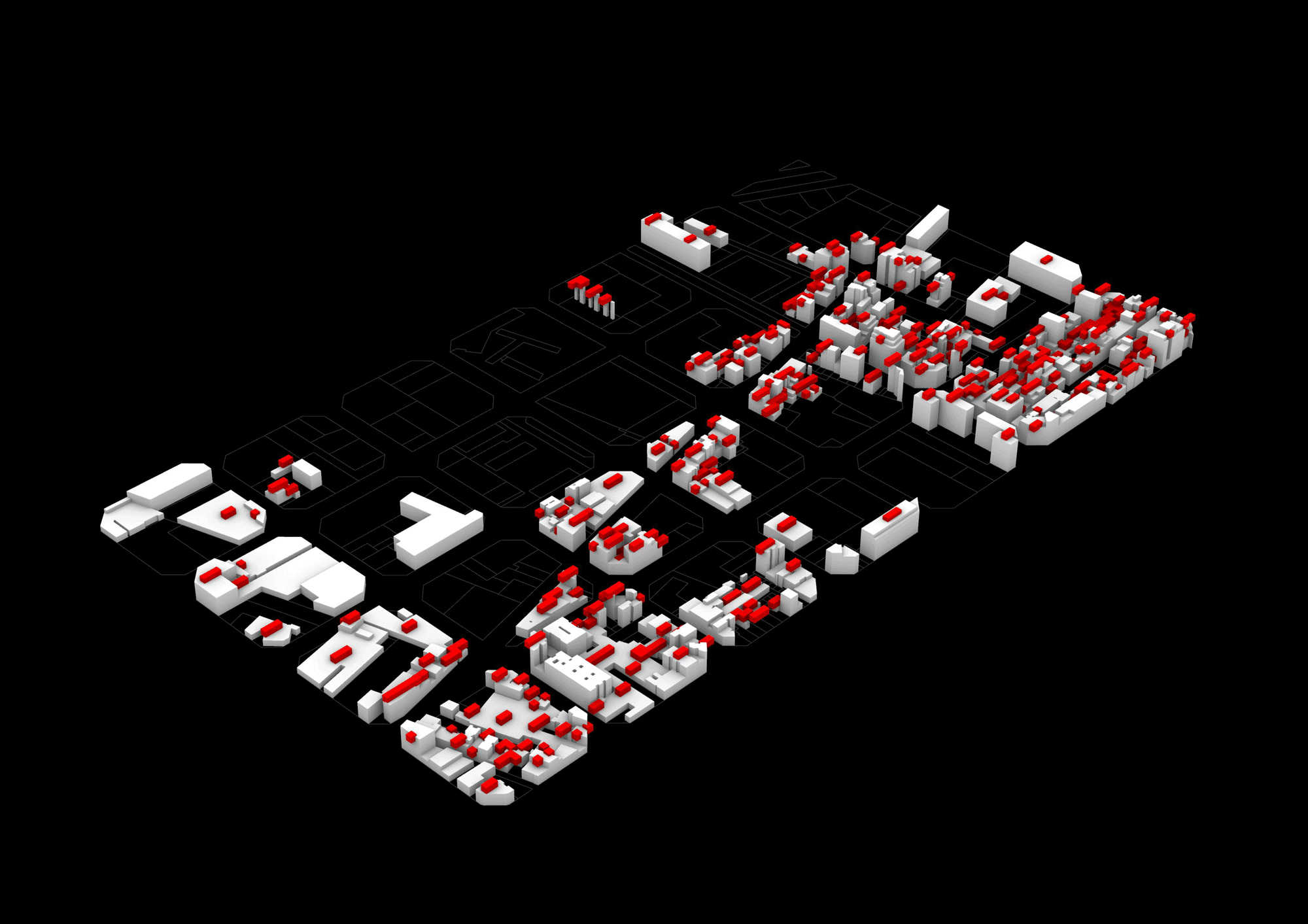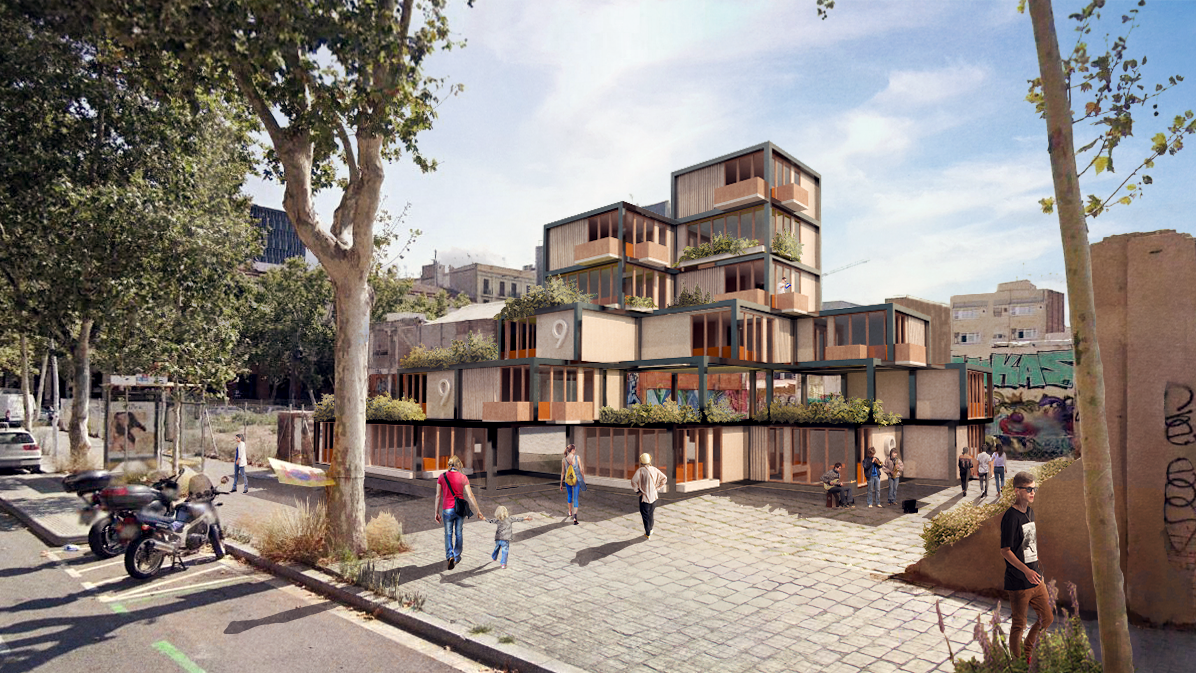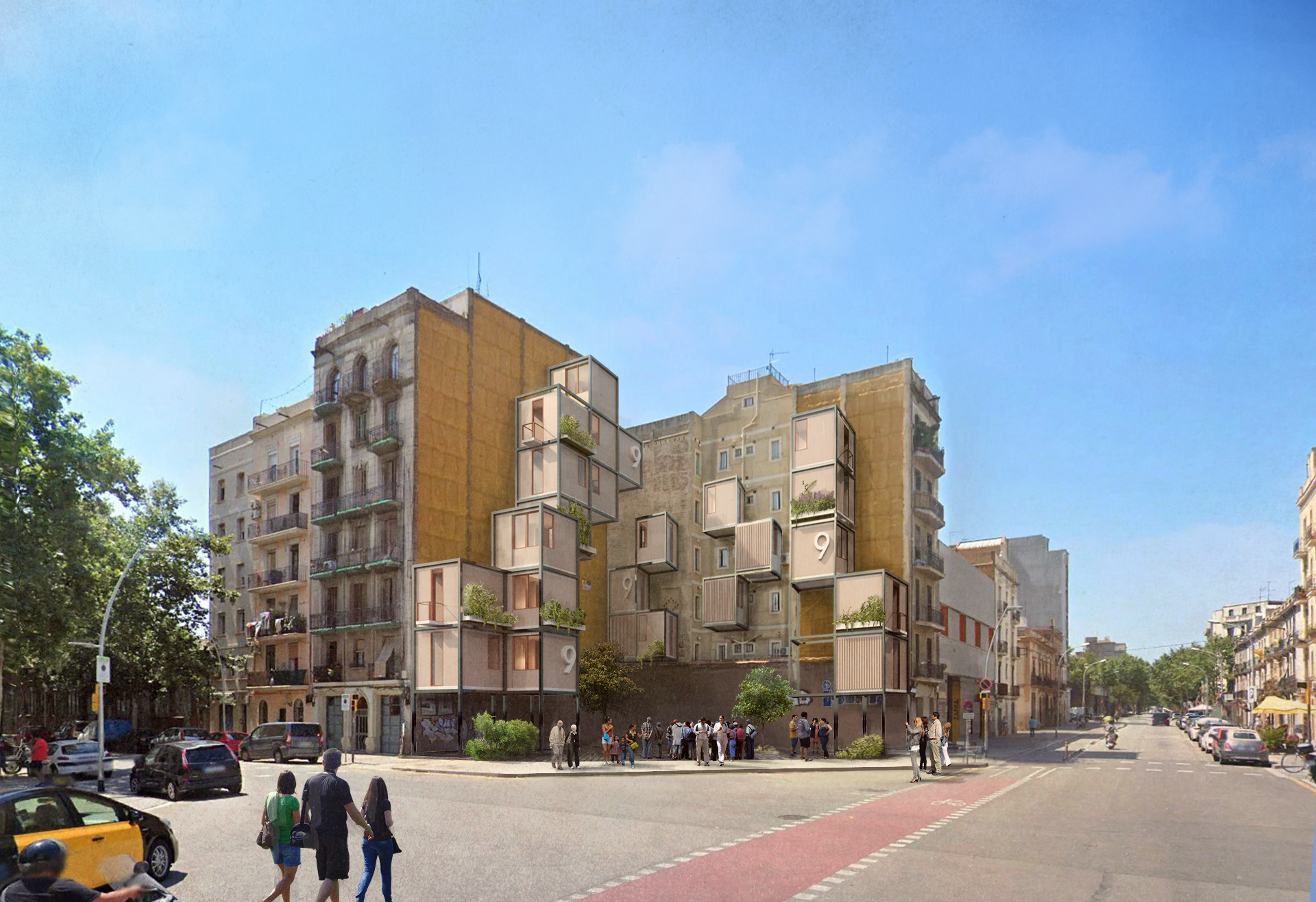Responsive Parasitic Housing
MaCT 2019/2020
Faculty: Areti Markopoulou, Alex Mademochoritis and Iacopo Neri.
Students: Byron Cadena, Aryo Dhaneswara, Andrew Saltzman
Accessibility to housing for low to moderate income groups in Barcelona has experienced a severe decline caused by massive tourism. On the supply side, the public sector has made some efforts to make affordable housing available to its citizens. Today, around 55 percent of the world’s population is thought to be living in an urban area or city, with that figure set to rise to 68 percent over the coming decades, according to the “Population Division” report from the United Nations Department of Economic and Social Affairs. The statement puts Barcelona at a greater risk for housing shortage, let alone affordable housing. When the role of government is once again seen as vital in funding and providing affordable housing for everyone, it becomes ever more important to have a better strategy by city councils to address the issue using advanced technology available.




